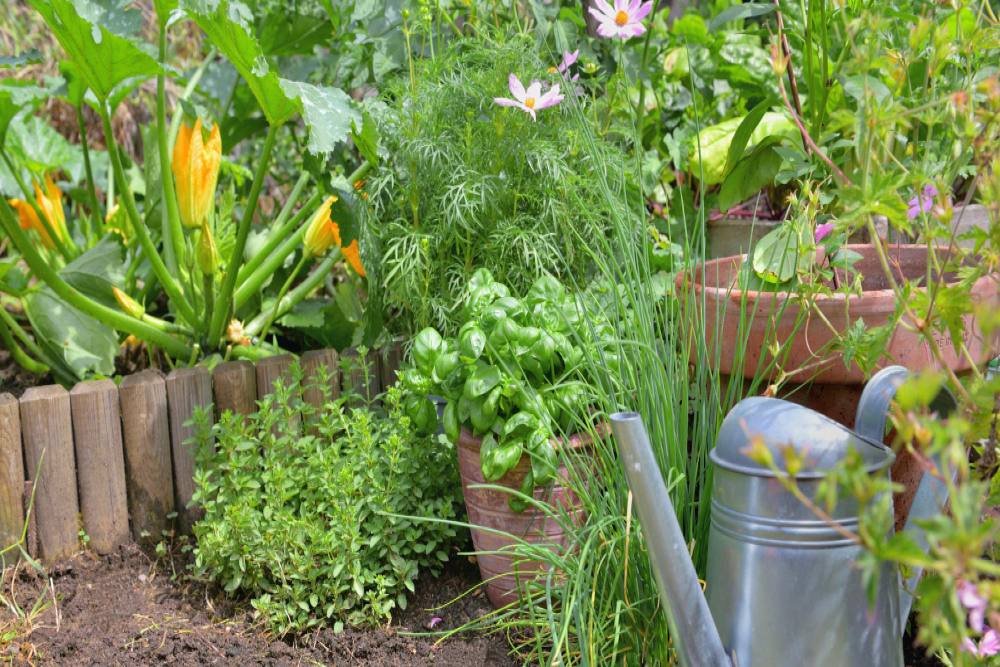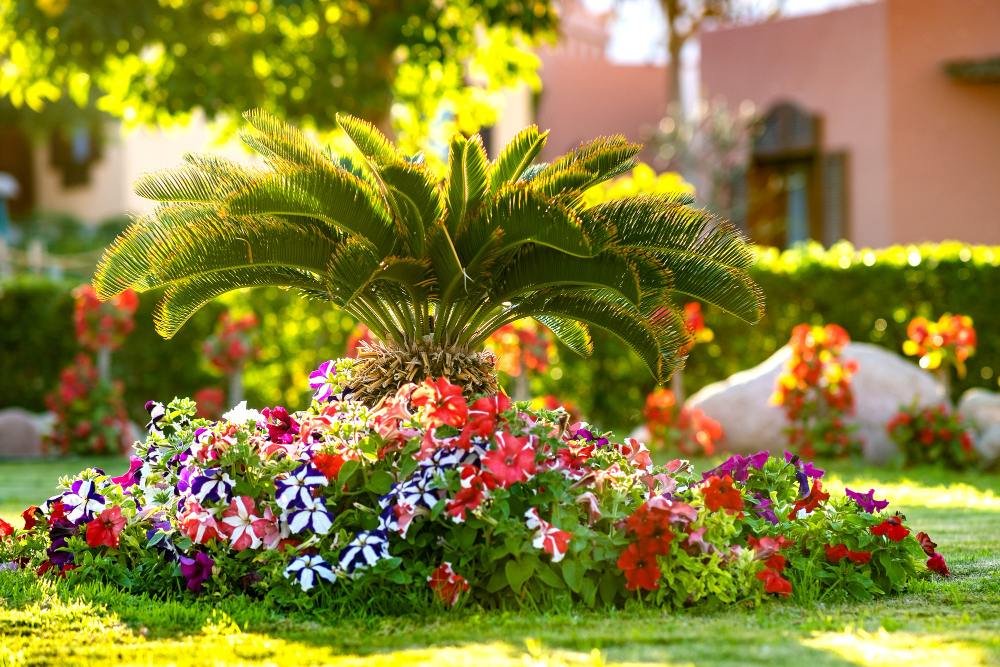As a gardening enthusiast, I always try to establish a connection between myself and the planet. The best way to do such, as per my POV, is by practicing sustainable friendly gardening. If you are unfamiliar with this term, sustainable gardening includes practices related to incorporating biodiversity conservation, resource efficiency, and environmental health.
This approach of mine is highly crucial for our existence on this earth when environmental degradation and the impacts of climate change demand the highest level of concern from each human. If you are also a gardener or in some way connected with planting, I encourage you to go for eco-friendly gardening. To help you understand better, I elaborate on the concept of eco-friendly gardening while detailing its importance.
Understanding Eco-friendly Gardening
At the beginning of the discussion, I want to inform you that eco-friendly gardening practices maintain harmony between your planting-related tasks and nature.
The associated approaches never act against nature’s rules. It also includes gardening practices like minimizing the use of artificial substances, avoiding synthetic material use, fostering natural ecosystems, planting based on respective areas’ soil, water, and water properties, etc.
You might know organic gardening; it is the same as eco-friendly gardening. However, there is a slight difference. In organic gardening, some synthetic-made and plastic materials are used, like grow bags, plastic sheets under the irrigation system, polytunnels, potting compost bags, etc. In comparison, eco-friendly gardening restricts the use of synthetic and plastic-made items.
These are not all; go through the following section to understand the concept of eco-friendly gardening.
Influential Factors in Eco-friendly Gardening
Through my experience and research, I have found core measures to include in your gardening practice if you choose sustainable gardening.
Taking Care of Biodiversity
Well, it is obvious that you are growing plants on your open land or backyard to produce fruits, vegetables, flowers, etc., for yourself. But, if you decide on eco-friendly gardening, you must think beyond this personal-need-meeting perception.
You need to consider and contribute to local ecosystems critically. What you can do is prioritize native plants at the first point. Also, you must grow plants that provide food and a natural habitat for birds, bats, flies, moths, bees, etc., and the surrounding wildlife.
Effective Resource Use
On earth, natural resources are limited. From water to soil, everything is limited. So, to ensure the retainment of environmental sustainability, the associated natural resources in gardening need to be used effectively.

For example, you must not waste water in gardening even if you can access a higher quantity. Think about the future; today’s waste will lead to a shortage in the future.
The following are my gardening practices in this regard, which you can follow:
- I use the deep irrigation method. Also, to save water, I collect rainwater and store it in the shade of my garden to use it when plants require excess water.
- Motorized tools also leave higher carbon footprints. Considering this, I always prefer to use energy-efficient tools that consume less energy and generate less smoke.
- Whatever garden waste I receive, like leaves, grass clippings, broken plant bodies, etc., I use them in composting.
Zero Chemical Use
Chemical-based fertilizers, weedkillers, and pesticides harm the environment. These may boost production but have an adverse impact on the surrounding nature.
For instance, the chemicals wash away after rain and mix with the nearby natural water bodies like ponds, lakes, or rivers. It triggers water pollution while contributing to the extinction of various wildlife. Also, the production of these chemical-based items has a greater carbon footprint.
Sustainable Practices
It is directly related to our desire to grow more and more. Eco-friendly gardening opposes such a mindset. Following this, lowering our needs and putting less pressure on the garden’s soil, respective water source, etc., is necessary.
I would like to talk about my vegetable garden as an example of this. I always give rest to the soil after harvesting a particular vegetable. Take tomato harvesting; after picking the tomatoes, I leave the soil in nature’s hands, not heading to use that portion of land for growing another plant.
In this way, the respective soil receives natural boosts.
Maintaining Soil Health
Healthy soil allows the growing of healthy plants, which consume carbon dioxide from the air while mitigating climate change. To import healthy context within my garden’s soil, I use the following:
- Use of natural composting
- Cover cropping
- Crop rotation
- Reduced pressure on the soil
- And many more.
Importance of Eco-friendly Gardening
If you are not yet convinced to adopt eco-friendly gardening, read the following points to realize how vital sustainable gardening is.
Boosts Human Well-being
Eco-friendly gardening demands more physical and mental involvement with nature from your end. It directs you to know nature more while asking you to do more physical jobs without using motor tools.
These strengthen the bond between you and nature, triggering the highest level of mental satisfaction. In summation, eco-friendly gardening activities enable healthy physical and mental conditions.
No Harm to the Environment
Zero chemical and plastic use restricts environmental pollution. First, there is no chemical-based fertilizer or pesticide use, so there is no chance of water, soil, or air pollution.
Second, you do not contribute to GHG emissions while producing plastic and chemical-based gardening items.
Protection of Soil Health and Water Resources
Sustainable gardening practices are essential to protect soil health. If you do not impose environment-friendly gardening practices, sooner or later, your garden’s soil will become less fertile.
This context will direct you to use more chemical fertilizer, water, etc., while the soil will provide lower outputs. Finally, one day, the soil won’t grow any healthy plants. This will impact the whole area’s carbon dioxide consumption; a degraded number of plants means less carbon dioxide elimination from the surrounding air.
The eco-friendly gardening practices also allow you to save water using deep irrigation, rain harvesting, organic mulching, or xeriscaping.
Retainment of Biodiversity
Local ecosystems’ retention is highly required to ensure a sustainable environment. Eco-friendly gardening facilitates such.
The associated activities support local wildlife by providing food, shelter, and secure areas. Finally, the retention of wildlife restricts any environmental degradation.
Establishes Sustainable Food System
This point is crucial for growing vegetables, fruits, and flower-based foods in your garden. The eco-friendly gardening practices direct you to grow plants that produce nutrient-saturated foods.

These fresher and testier foods do not host any chemical components. This keeps you fit while encouraging others to adopt your practices and establish a secure and sustainable food system within the community.
Low Waste Generation
We all know that waste generation and management are critical in restricting environmental degradation and associated climate changes. The concept of eco-friendly gardening allows you to get less waste in your gardening activities.
The reason is that almost all waste is recyclable, as you do not use synthetic or plastic items. For example, you use natural wastes to produce organic composts, which reduces the load on the local waste management system while naturally boosting the soil’s fertility.
Final Words
I expect that the detailed discussion on eco-friendly gardening and its importance will encourage you to pursue this sustainable gardening concept. By realizing its significance and adopting the practices, you will address your responsibilities to make our earth existent.
Also, the practices will allow you to boost your and your family’s physical and mental health and leave an example for the community.


